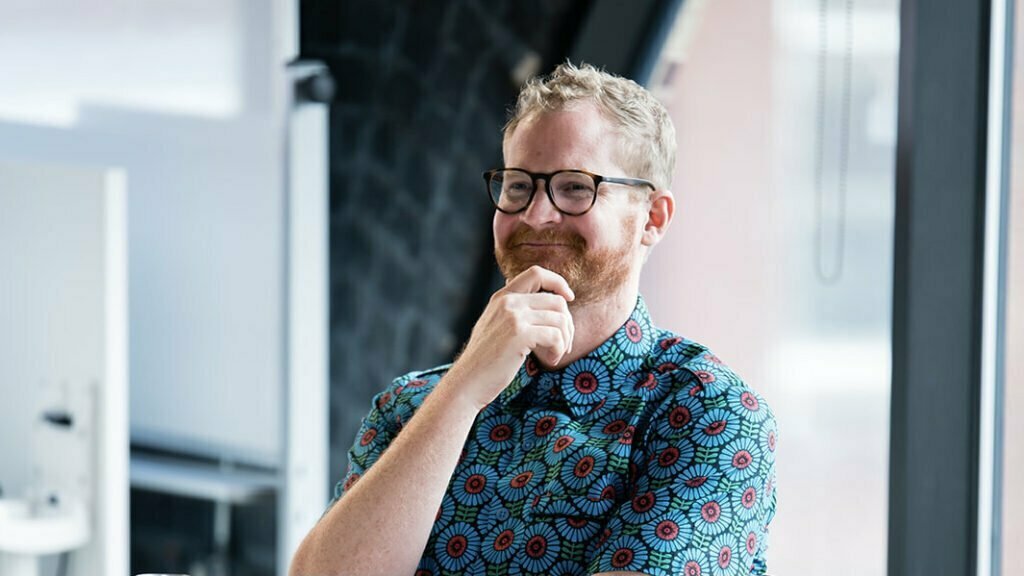
Ori Baber, PhD, Analyst
Dr. Ori Baber is an analyst at Urban3, a modest job title that conceals his many contributions to the firm’s work. Dr. Baber works at the intersection of public health, the natural environment, and urban design, with a profound understanding of the ways that marginalized populations have been distinctly disadvantaged. He’s now developing new funding partnerships to address these systemic patterns of inequity, most notably with the Dogwood Health Trust and their investment in the breakthrough Just Accounting for Health initiative, where he’ll work alongside researchers and activists from the University of North Carolina Asheville (UNCA) Department of Health and Wellness, the Asheville Racial Justice Coalition, and Strong Towns to delve into irregularities in the way property is assessed in an 18-county region of western North Carolina. Bringing new people into discussions about how to repair our communities is essential, and it just so happens to be Ori’s specialty.
What do you do — and is that different from your job title?
I think my title and my job description are fairly well aligned. Technically, I’m an analyst. I’ve been familiar with the firm going back to 2017, when I was working for the city of Gainesville, Florida. I was staffing the community redevelopment agency there, doing a lot of deep strategic rethinking of the organization’s structure, its budget, its financing — things like that. We brought Urban3 in to help us. They did a standard VPA (value per acre) analysis and a critical lens to the work we had been doing there over the last 10 years. That’s where I immediately appreciated Joe’s ability to come in and shake stuff up. His ability to bring the community and elected officials into the fold sparked a dialogue that was different than the one that we were able to do. That was really exciting to see.
How did you come into this kind of work?
I think that that really started while I was in college. My graduate work was from The Engineering School of Sustainable Infrastructure & Environment at the University of Florida. I worked to translate a lot of the early environmental work that the department was doing into the health space. Folks were working on water quality issues, air quality issues, transportation-related stuff. I would always be pushing that into the health space and asking the implications of what we were doing. The lab I was involved with was doing really nuanced air quality research, like studying down in the weeds of the chemistry, but I was constantly translating this into, “what does this actually mean in a more practical way?” That was my master’s program, and I started working for a new center that they built: the Florida Institute for Built Environment Resilience, or “FIBER”. This is a multidisciplinary team that has engineers, architects, designers, public health practitioners, all within the same space, which is a really cool working environment. I think I’ve really honed my ability to work across a couple of different disciplines, but I think everything that I bumped into workwise always boils down to, “Where’s the money?” I quickly left the downstream program implementation space and moved to what I consider to be far upstream, which is understanding the financial health of organizations that are in this space — specifically local government.
As you look to the future of cities and specifically the kind of research that urban3 offers, what worries you? What excites you?
There’s a lot more stuff that excites me — a lot of exciting stuff. I think that building relationships with various funding organizations is really quite exciting. I see a lot of really influential organizations benefiting and like leading the work that Urban3 does. I’m excited to start finding those inroads and opportunities. That’s a big piece. Internally building out our capacity to go after grant funding and figuring out the logistics behind all of that is really exciting for me. Building those strategic partnerships and moving more intentionally into the community health development space — I think that that is going to be very natural. Again, it’s about translating our work into that space and starting to build those connections, and moving into the climate-resilience-sustainability space — that’s kind of a no-brainer.
What would you say to someone coming out of college who was interested in this work and considering an opportunity at Urban3? Why join this firm as opposed to another one?
I would encourage them to reflect on the realization that I had at some point: it all boils down to money. That’s the foundational element here. A lot of the time that is the biggest deciding factor, whether or not programs work, and we have moved forward the understanding of financing and funding behind it. I feel like it’s critical work that can be taken in a number of different directions. Having that sort of solid financial foothold is the thing — and that’s firmly the space that Urban3 operates in.
Ori and his colleagues are eager to help you better understand your city’s finances so that you can grow with resilience and responsibility. Contact us to learn what we’ve done for other communities and what we can do for yours.